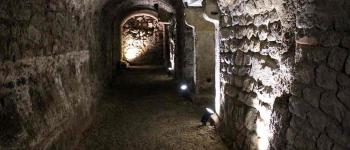
In Cucugnan, in the Aude, the inhabitants have lost their faith, and the parish priest recounts in a sermon that he dreamed that he was going to Heaven and then to Purgatory and could not find the dead inhabitants of Cucugnan there. He found them in Hell. He then planned to confess the whole village and restore faith to all the inhabitants.
The theme of the parish priest, telling an imaginary dream to frighten and bring back to the church his somewhat unbelieving parishioners, falls within the realm of Occitan oral tradition. However, as time goes by, many versions never cease to amaze us!
The Curé de Cucugnan is a sermon given by a young magistrate from Lyons, Auguste Blanchot de Brenas in 1858, which Alphonse Daudet made popular in the form of a short story published in L'Événement on October 28, 1866, and then in "Les Lettres de mon moulin" in 1869.
Already in 1866, the famous Joseph Roumanille wrote a Provençal version of Blanchot de Brenas' text which he published in "l'Armana prouvençau" under the title "Lou curat de Cucugnan".
Alphonse Daudet translates Roumanille's text which he publishes the same year, accompanied by the following incipit: "Every year, at Candlemas, Provençal poets publish in Avignon a joyful little book filled to the brim with beautiful verses and pretty tales. This year's one is coming to me right now, and I find an adorable fabliau that I will try to translate for you by abbreviating it a little... ". He adds in the explicit: "And this is the story of the priest of Cucugnan, as I was ordered to tell you".
The poet Achille Mir, from Carcassonne, had the idea of bringing the tale back to its original setting in the Corbières and rewrote it in Occitan and verse in 1884.
Thanks to Achille Mir and especially Daudet, to Fernandel's record and that of Alain Barrière, to the cinema with Fernand Sardou, the Curé became famous.
Translated with www.DeepL.com/Translator
(free version)




